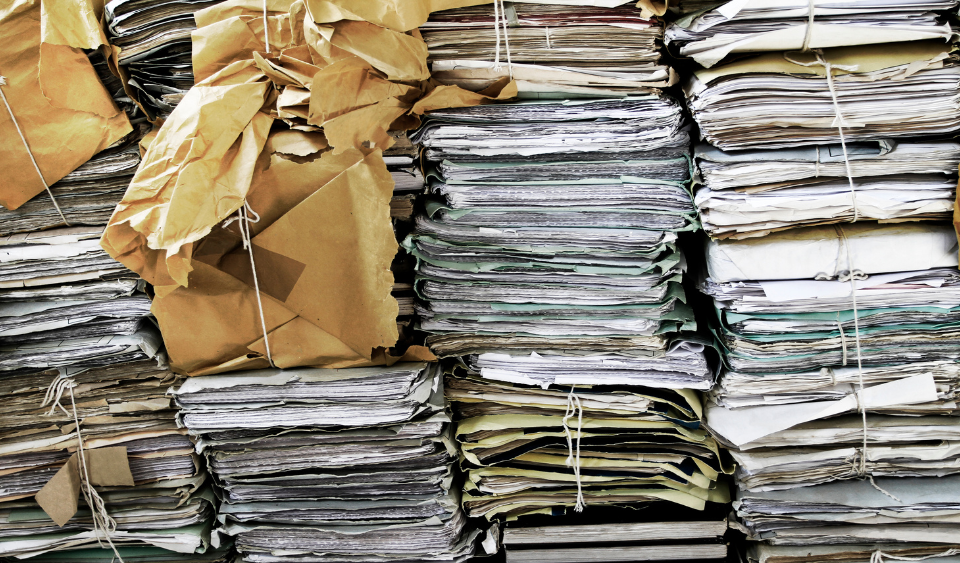Benefits of Blockchain for the Pharmaceutical Industry

If there is any industry that has been in the spotlight for the past couple of years particularly, it has been the pharma industry. Responsible for helping millions of people surpass the limitations wrought by the global health crisis that kicked off this decade, the healthcare sector is likewise integral to the lives of millions of people worldwide.
From the pills you take casually yet carefully to manage a headache or sore throat, to the valuable medication individuals with lifelong conditions rely upon daily to manage their conditions and continue to lead active and enriching lives, the pharma sector is always rich with innovation, change and the need for a robust supply chain.
Yet supply chain disruptions are far from the only challenge being posed to the pharma sector today. From ethics and accountability, through to the very real risk of dangerous counterfeit drugs flooding the market via unscrupulous businesses who sidestep regulatory norms, there are dire needs being expressed throughout both this and the wider healthcare sector.
Yet it is hardly as though we can pump the brakes on the pharma industry for a full evaluation of traceability and the like – so what can be done?
The answer could well lie in the deployment of blockchain technologies.
Understanding the symptoms – blockchain for the pharma industry
Blockchain technology has actually been with us for decades in some form or another, although today it is most famously regarded for its utility in cryptocurrencies.
This is actually only one of manifold uses for blockchain technology however – and indeed, a security heavy example of blockchain technology in action, such as that seen in cryptocurrencies, actually does much to emphasise why it can do so much for the healthcare and pharma industries too.
Blockchains operate by remaining open to community involvement, often entrusted to no single entity in decentralised examples. They function with the full traceability that a fully secure store of value would require, and cryptocurrencies only ‘move’ through the digital ecosystem not by the actual movement of ‘coins’, but in the exchange of values of encrypted data made possible by how the blockchain operates.
Contrary to how most computer file systems work in our world today, the blockchain functions by creating blocks of data, encrypting them, then adding a chain of blocks to follow it that each build on and lock in the last.
The end result is that blockchain technology is impervious to hacking and immutable against data tampering. For records that necessitate permanent precision and accuracy, this makes the blockchain an incredibly powerful tool for utilisation in pharma companies and in the wider healthcare sector.
It also represents an opportunity to move the control of personal pharma and healthcare data away from big organisations likely to abuse it for profit. Ideally, pharma data on the blockchain will belong to the individual to whom it relates – or perhaps better, to nobody at all, being data in the purest sense; merely information upon which healthcare and pharma professionals can make informed decisions on treatment and care.
Triumphing over traceability troubles
The chinks in the armour of the global supply chain are being felt in every industry worldwide. Yet while a shortage of coffee beans, video games consoles or copper wire components could give plenty of people plenty to complain about, supply chain disruption in pharma and healthcare businesses stands to do far worse – perhaps bringing human lives into harm’s way.
The pharma industry is not blind to its supply chain issues. Exacerbated heavily by the events of the international viral pandemic, expert discussions and analytical articles on the matter highlight the level of unpreparedness rife in the healthcare sector – despite mounting scientific evidence that some kind of a global health crisis was an inevitability of sorts.
The ambitions of the pharma supply chain lean on many of the same ambitions seen in troubled supply chains in other industries – leveraging Big Data, streamlining overwrought supply chain systems, and so on and so forth.
Yet as any reader who has wrestled with a pharma or healthcare provider on the phone to ask where their much-needed medicine is will tell you, Big Data is not worth much if the data itself is wrong. This is before we even get to the thorny issue of data being bought and sold behind the veils of secrecy that make algorithms and machine learning possible – not to mention the modern advertising industry.
Yet by converting the data necessary to modern and effective pharma services to the blockchain, a more robust and immutable nexus of information is created. Belonging to the community for whom it was created, this pharma blockchain resource would also boast tremendous accuracy, with no risk of manipulation from bad actors.
Speaking of bad actors, an unfortunate reality is that the pharma and healthcare products manufactured worldwide often need to cross countless borders simply to reach the store shelf. In that respect, they are victims of the same ‘creative’ customs forms and ‘missing’ shipments as many other desirable and valuable products.
With a blockchain based traceability system, a corrupt official or petty thief fudging their papers to conveniently lose medication in transit at border crossings – or even simple bureaucratic errors delaying them crossing said borders – can finally become a thing of the past. A block in the chain that represents an error in the supply chain can be acted on immediately, with up to the minute insight throughout.
Traceability to tackle the counterfeit pharma conundrum
As far back as 2017, the World Health Organisation was warning that one in every 10 pharma and healthcare products manufactured overseas is ‘falsified or substandard’. Half a decade and counting later, counterfeit pharma products remain an incredible concern.
Such is the reliance of the global population on the pharma industry that there are simply more goods moving around than there are resources to take accountability for their safety, efficacy and legitimacy. A counterfeit handbag or bootleg DVD is one thing – a healthcare product to be inserted into the human body, whose ingredients and chemical makeup are counterfeit, is another danger entirely.
The pharma industry is not taking the issue of counterfeiting lying down. Incentives are already in play – for example, the QR codes now being deployed in India and other nations worldwide to demonstrate the traceability and legitimacy of the pharma products hitting store shelves.
An admirable step forward – and a superb example of the ongoing ubiquity of QR code adoption in modern society, together with their transformative effects. Yet given the built-in fallibility of QR codes as a medium, this solution may not be as thorough and meticulous as the healthcare industry truly needs to ensure legitimacy.
Traceability is a complex problem, and it relates to not only the pharma products that are lining store shelves or being sold online, but also each ingredient, and the legitimacy thereof, that goes into their creation. Understanding this complexity makes it clear as to why it is such a headache for the pharma sector today – yet it nevertheless represents a key supply chain traceability opportunity in which the blockchain can play a pivotal and mechanically perfect role.
After all, counterfeit pharma products are not the purview of chancers and low key criminals, but rather organised crime operations and the full dangers of corruption and miscarriages of justice that go with them.
As such, taking the question of traceability and placing it entirely in the digital realm, locked into privacy and security via blockchain security, can do plenty to remedy these issues.
Blockchain technology can improve pharma collaboration
What could charitably be described as a quirk of our civilisation is that it depends on the exchange of ideas to succeed, yet it is also largely driven by profit and of innovating a proprietary technology to which nobody else has any rights to use.
In the pharma sector, this need for secrecy and keeping the details of projects from one another may well protect the business interests of a given healthcare operation, but does little to promote the exchange of information that can help to promote humanity’s spirit of invention born of collaboration.
Via a blockchain pharma solution, empowering a platform that is decentralised and pseudonymous, these issues are far less pronounced. This is because the trustless means of collaboration made possible by blockchain solutions creates a means of interacting and exchanging ideas that does not risk giving away private patient data, proprietary technologies and so on.
The hope is that the blockchain can bring a new frontier to pharma research and development, enabling the faster development, testing and distribution of new healthcare products – replete with supply chain traceability – without any corporate interests being risked to undue exposure.
Unparalleled data privacy for all
The protection of privacy for sensitive pharma company operations is one thing, yet it is vital that the real advantages of unlocking and implementing this technology in this industry is recognised.
In short, the greatest advantages ought to be the safety and security of the patients making use of pharma products in their everyday lives – from the individuals with conditions demanding daily injections or pills, to those of us simply looking to take a couple of tablets with a glass of water to make our headache go away.
As such, the blockchain and its natural predilection for unbreakable encryption make it the perfect medium to which to entrust sensitive patient information. Not only that, but the blockchain will also provide a permanent and immutable record of an individual’s history with pharma products – useful to help healthcare professionals in identifying patients with whom there exists a troubled relationship with painkillers, for example, or to help doctors more rapidly distinguish which pharma products have or have not been tried in remedying a complex medical case.
This blockchain data can work hand in hand with developing more accurate and trustworthy patient records too. Anyone who has had to laboriously explain a complicated health condition to a healthcare professional over and over might suspect what many in the medical profession sadly already know – that medical records are often badly kept and, more concerningly still, often concerningly wrong.
The challenges to overcome in the blockchain pharma ambition
Although the blockchain can work wonders for accuracy, traceability and supply chain accuracy in the pharma sector – among countless other advantages – the reality is that the broader healthcare sector, and the general population, are not fully ready to recognise its advantages.
The first is the more common issue of separating the notion of blockchain technology from the cryptocurrencies empowered by it. While the distinction is easy once it is known, it is still one that is often overlooked by the mainstream media, who believe the blockchain is always digital assets and vice versa.
The next challenge to be overcome is that of storage and technological adoption. It is sadly not an exaggeration to suggest that many pharma businesses worldwide continue to operate on digital systems that have long since passed the point of being quaint, and are not downright archaic. A need for modernisation, including systems capable of handling the immensity of data that blockchain technologies sometimes demand, is key.
Finally, the pharma and healthcare industries will need to converge and agree on a blockchain platform that can be universally adopted and easily integrated – fully interoperable with other solutions as they emerge worldwide.
Overcoming these challenges feels well worth the short sharp shock of the effort and time that will be involved. The pharma industry is central to the health, and therefore wealth, of every society on our planet. Such a key industry cannot be allowed to flounder when it could flourish – and likewise, just never fall behind the technological curve, or fall victim to widespread counterfeiting.
At Mangrovia Blockchain Solutions, we remain incredibly excited by the potential offered by blockchain technologies to the pharma and healthcare industries. We continue working with business on issues relating to supply chain accuracy and traceability in resources – and we believe that the future of the blockchain in the pharma sector is destined to take centre stage.
Contacts:
+39 02 45391390




